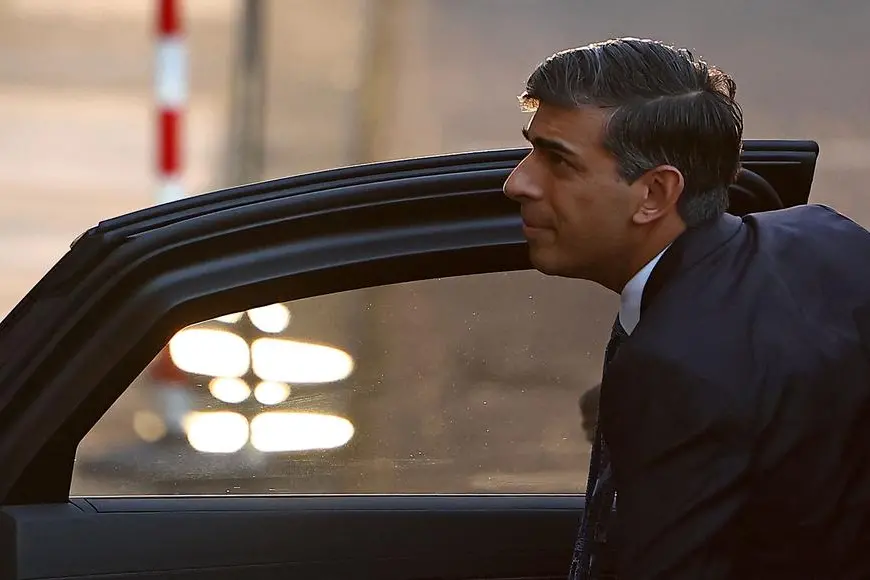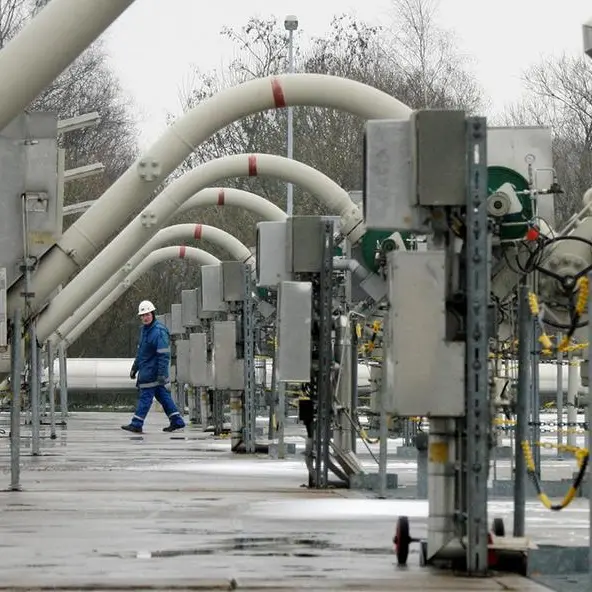PHOTO
UK leader Rishi Sunak faces the riskiest week of his premiership, with lawmakers gathering Monday to decide whether to back his flagship policy to send asylum seekers to Rwanda.
Factions of MPs from across Sunak's divided Conservatives have convened meetings to consider how to vote when the controversial legislation goes before parliament on Tuesday.
Sunak has put the plan at the heart of his pledge to stop irregular migration, making the issue a key battleground in a general election expected next year.
But opposition to the scheme from both right-wingers and centrists is widening schisms in the ruling party, putting Sunak's year-and-a-bit leadership in jeopardy.
The government announced a new bill last week after Supreme Court judges ruled in November that the deportation plan was illegal, as Rwanda was not a safe country.
The legislation would compel judges to treat Rwanda as safe and proposes giving UK ministers powers to disregard sections of human rights legislation.
The proposals have sparked fresh concerns from opposition parties, human rights groups and more moderate Tories who oppose any violations of international law by Britain.
However, right-wingers -- including Robert Jenrick, who quit as immigration minister last week, and firebrand ex-home secretary Suella Braverman -- say the legislation fails to go far enough.
Some on the right have called for Britain to withdraw from the European Court of Human Rights and other international treaties, to stop courts blocking removals.
Up to 100 backbench MPs from five different groupings on the Conservatives' right wing, including the powerful European Research Group (ERG), which advocated a hardline Brexit.
The ERG called the bill was "the toughest piece of migration legislation ever put forward by a UK government".
But it said it only provided a "partial and incomplete solution" to expected legal challenges and would require "very significant amendments".
The centrist One Nation group, which also has about 100 members, is expected to release its own statement later on Monday.
Tuesday is the first opportunity that MPs will have to vote on the legislation, in what is called a second reading.
- 'Unite or die' -
A government bill has not been defeated at this stage in the process for almost 40 years.
But several abstentions would also damage Sunak, who was elected unopposed by Tory MPs in October last year following Liz Truss's calamitous 49-day reign.
If it scrapes through, right-wingers are also expected to try to rewrite the legislation at later stages while the House of Lords upper chamber would have an opportunity to block it.
Sunak has bet his pledge to "stop the boats" crossing the Channel on the Rwanda scheme -- which has been stuck in the courts since the first deportees were pulled off a flight at the last minute in June 2022, after an injunction from the European Court of Human Rights.
Almost 30,000 irregular migrants have crossed the Channel from northern France in rudimentary vessels this year.
Tory divisions have worsened since Britain voted to leave the European Union in 2016, largely on a promise to "take back control" of its borders.
Sunak, who has told MPs the Conservatives must "unite or die", has denied that Tuesday's vote amounts to a confidence vote on his leadership.
Some Westminster watchers have speculated that he may be tempted to call an early election -- which must be held by January 2025 -- if he loses the vote.
The Conservatives, in power since 2010, have served up five prime ministers since the 2016 Brexit vote.
They currently lag well behind Labour, the main opposition party, in opinion polls.





















